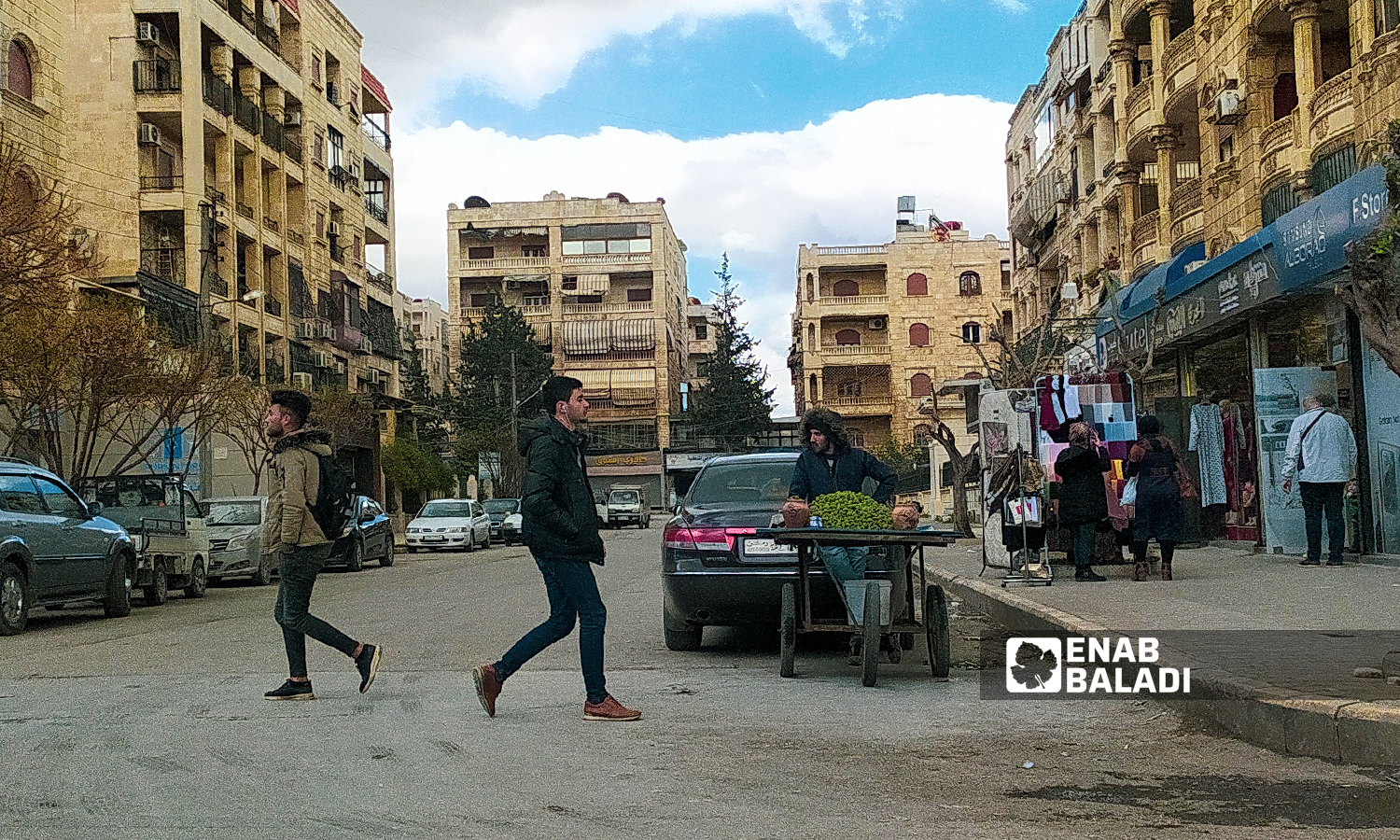
Does migration stimulate the housing market in Syria?

Enab Baladi – Saleh Malas
Driven by his decision to leave Syria forever, Youssef, aged 48, has to say goodbye to his home in the Saif al-Dawla neighbourhood where he spent around 24 years crafting many great memories.
“I put my house up for sale because I needed money. Actually, all I am thinking about right now is to travel to Erbil, with my family. And I am going to make this happen once I have sufficient money,” Youssef told Enab Baladi.
Withholding his last name for security reasons, Youssef is preparing his bags to leave Syria from Aleppo International Airport to Erbil International Airport in northern Iraq, trying to reach his last destination, France. His relatives, who have been living there since 2014, will be waiting for him.
The general situation in Syria is not promising due to the deteriorating living conditions, the security services’ crackdowns, and the prevalence of corruption. This is regardless of the areas, which are under the control of different security forces.
Thus, all these problems turn into powerful drivers among Syrians to see a promise of a more dignified life through migration than staying at home.
In light of these drivers, the immigration rate has increased significantly in various Syrian regions. This increase has impacted the housing market, an economic issue that may cause severe complications in people’s lives, not to mention its social impacts in the future.
Migration as an escape from the unknown
Youssef elaborated, “I bought my house in 1997 for five and a half million Syrian pounds (SYP-100,000 USD). In the past few months, I was offered 275 million pounds (about 85,000 USD)for selling my house. But, I refused to sell it because I thought things would get better following the presidential elections, which took place last May. However, things continued to get worse. In other words, life became unbearable.”
Last July, Youssef put his house up for sale through the real estate agents. According to Youssef, they offered to purchase the house for only 180 million pounds (about 55,000 USD) on the pretext that “the real estate market is stagnant and everyone wants to sell their properties and travel abroad,” according to Youssef.
Youssef regrets that he has not sold his house earlier. Currently, “The sellers control prices of homes as well as real estate agents, who want to get a considerable commission percentage. Now, the price offered is 195 million pounds (about 60 thousand USD). It is little compared to the price offered before the election. “
Youssef is waiting to get the payment for his house at the end of September. Then, he will leave Aleppo with his wife and three children, without any plans to return.
“I do not want my family to experience further dire living conditions. And even if the situation in Syria gets relatively stable in the future, I still believe migration is in my children’s best interests. I do not want them to face an uncertain future in their home country.”
Government decisions affecting housing
Whether agricultural, residential or commercial, real estate constitutes a critical element of the country’s economy. This is because real estate tax contributes to preserving and trading properties on the one hand and reviving the economic growth by increasing the rates of buying and selling properties on the other hand.
Syria’s real estate market is affected by several factors linked indirectly with migration on the one hand and the Syrian government issuing amendments to real estate financial laws on the other.
Last March, the Syrian government enacted amendments to the real estate sales tax law. The amendments included an increase in the tax collected by the state on the sale of real estate. ِAfter that, the market saw a noticeable stagnation, followed by the rise in real estate offered for sale.
After the real estate market stagnated due to the legal amendments, which stipulate the calculation of taxes of sold properties based on their market value instead of the price agreed upon by the seller and the buyer in financial records, the market somewhat recovered in terms of supply only.
This law has been problematic for evaluating real estate prices, Syrian economist and researcher at the Middle East Institute in Washington Karam Shaar told Enab Baladi.
Before the law was amended, “the price was evaluated based on the historical book value found in state records and documented as a result of the last sale. In the current amendment, a government committee evaluates the property at its current market price, which may exceed the historical price by ten times for a property built in the eighties for example, as a result of inflation,” Shaar explained. Thus, according to Shaar, government trends have affected the housing market in Syria during the last period.
The Syrian government, via the new real estate law, seeks to “prevent fraud”; it will not allow the seller and the buyer to declare a price lower than the actual selling price to get taxed less by assessing real estate prices independent of them [a government committee].
High supply meets low demand in Syria’s housing market
Those who sought refuge outside Syria (in the millions)in previous years, and those who are currently leaving or planning to leave, are “part of the total demand in the housing market. Yet, this part no longer exists, because they left Syria.” The supply of and demand for property in Syria were almost on equal footing before 2011. In other words, a decrease in demand went along with a decline in supply, according to Shaar.
The housing market problem currently lies with individuals’ weak purchasing power due to the country’s weak economic growth.
The purchasing power of individuals is adversely affected by low salary levels. It is noteworthy that Syrian employees’ incomes dropped sharply after 2011.
Syria tops the list of the poorest countries in the world at a poverty rate of 82.5 percent, according to data on the global World By Map website, which determined the statistics of the population below the poverty line in every country across the world.
The low purchasing power of individuals leads to the mismatch between supply and demand in the housing market. In addition, investors are reluctant to put their money into reconstruction projects.
Several factors make investors hesitant about investing in the real estate market. First, “there is a fluctuation the prices of raw materials required for construction.” Therefore, the investors will not be able to carry out a feasibility study for their project or calculate its financial losses and profits. They will not know how much they will ask for in return for selling the housing units after the completion of construction. This makes the process of planning an investment in real estate complex.
Second, the reduced demand for real estate is also related to the uncertainty of the future in Syria. Investors are afraid to set up their construction projects in Syria because there is always a shift in the powers controlling different parts of Syria. Investors could lose their projects in the blink of an eye due to the continued military operations. This significantly affects the customers’ supply, demand, and preferences for properties in neighborhoods and areas based on the nature of the project and its site.
In 2019, the UN Institute for Training and Research published a report which provides an overview of infrastructure damage in 16 Syrian towns and cities. According to Shaar, the damage was so severe that it would make investors reluctant to enter Syria’s housing market.
According to UN satellite analysis, the city of Aleppo tops the rate of destruction in Syria, with more than 35,000 damaged or destroyed structures, followed by Eastern Ghouta with 34,000, then Homs, Raqqa, Hama, and Deir Ezzor.
Therefore, an increased supply in the housing market and reduced demand have created a gap between them, resulting in a reduction in the level of reconstruction investment projects in several regions of Syria.
“Ticking time bomb”
Selling properties to leave Syria for safer countries has social dimensions. Some Syrians sell their properties in order to be able to buy flight tickets or take the smuggling route across the border and build a new life in the countries they wish to reach, without thinking of going back to Syria ever.
Syrians leaving their homes or lands in their areas of origin “contributes greatly to demographic change,” the coordinator of the research papers project on housing, land, and property rights at the “The Day After” organization, Ahmed Taha, told Enab Baladi.
“The real estate seller is often one of the internally displaced people or refugees while the final buyer is usually not from the region, not from Syria. This is because approximately 85 percent of Syrians are below the poverty line. So, who can buy these properties? Those who buy properties in Syria today must have been either from the merchant class that arose during the war or from the sectarian militias that came with Iran’s funding support,” Taha said.
When the demographic composition changes in a particular area due to the possession of properties by individuals from outside the areas, the customs and traditions of that area may change over time, which consequently leads to a loss in the area’s cultural memory, according to Taha.
“The demographic change of a certain area tampers with its intangible cultural heritage. It is a change of the identity of the place, replacing its original identity with one that does not belong to it.”
According to Taha, this change in the area’s identity portends a future crisis, and it is a “ticking time bomb that could affect civil and societal peace” in the future. This crisis will take the form of sectarian and ethnic conflicts that are difficult to end.
Customs, social practices, rituals, and festive occasions are among the most important components of the historical environment in any country.
In one of his press interviews, the Syrian opposition writer and thinker Hassan Abbas pointed out that the Syrian cultural heritage has been subjected to several violations, beginning with “The phenomenon of global banditry that affected all the historical sites in the region, and it not only included banditry by antiquities dealers’ gangs but also included banditry by national authorities or those who shelter in their shadow.”
Intangible heritage does not live in archaeological sites or museums, according to Abbas, but in “society and in the hearts of its owners. If the community is destroyed and its people are homeless or killed, the immaterial heritage is dissipated and is also ruined.”
In a report issued by the UN in 1951, which is the preliminary report to examine the refugee problem, it stated that “a refugee is necessarily one who does not have a homeland. He is a weak, sad, and innocent victim of events for which he cannot be held responsible.”
Most Syrians who left their country are trying to find a decent job and a better and safer life. But at the same time, they left their properties behind, neglected. Consequently, this gives the government institutions the freedom to pursue different practices that serve their interests, divorced from ethical considerations or just legal controls, or spare Syria from future social or economic crises.
if you think the article contain wrong information or you have additional details Send Correction
النسخة العربية من المقال
-
Follow us :

















 A
A
A
A
A
A
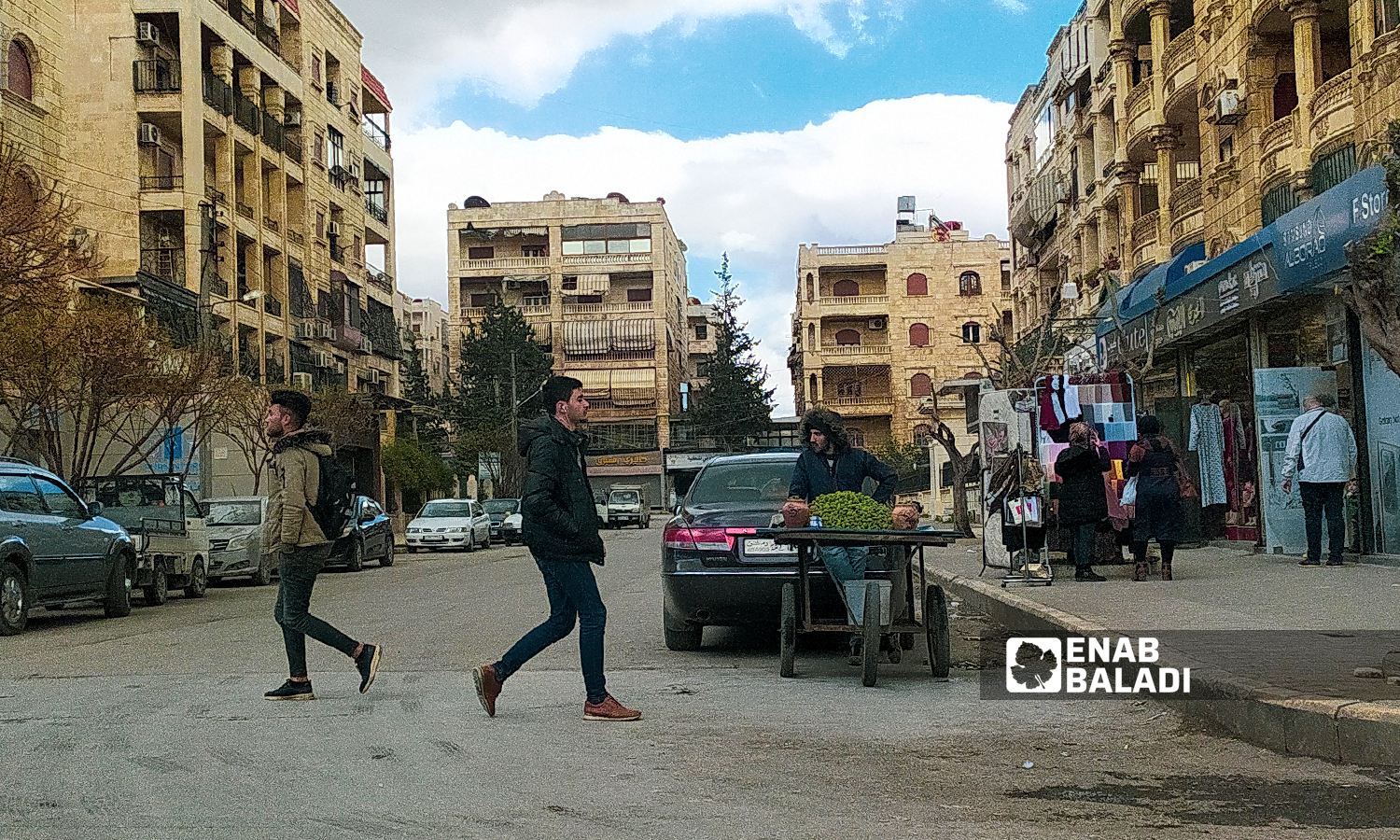
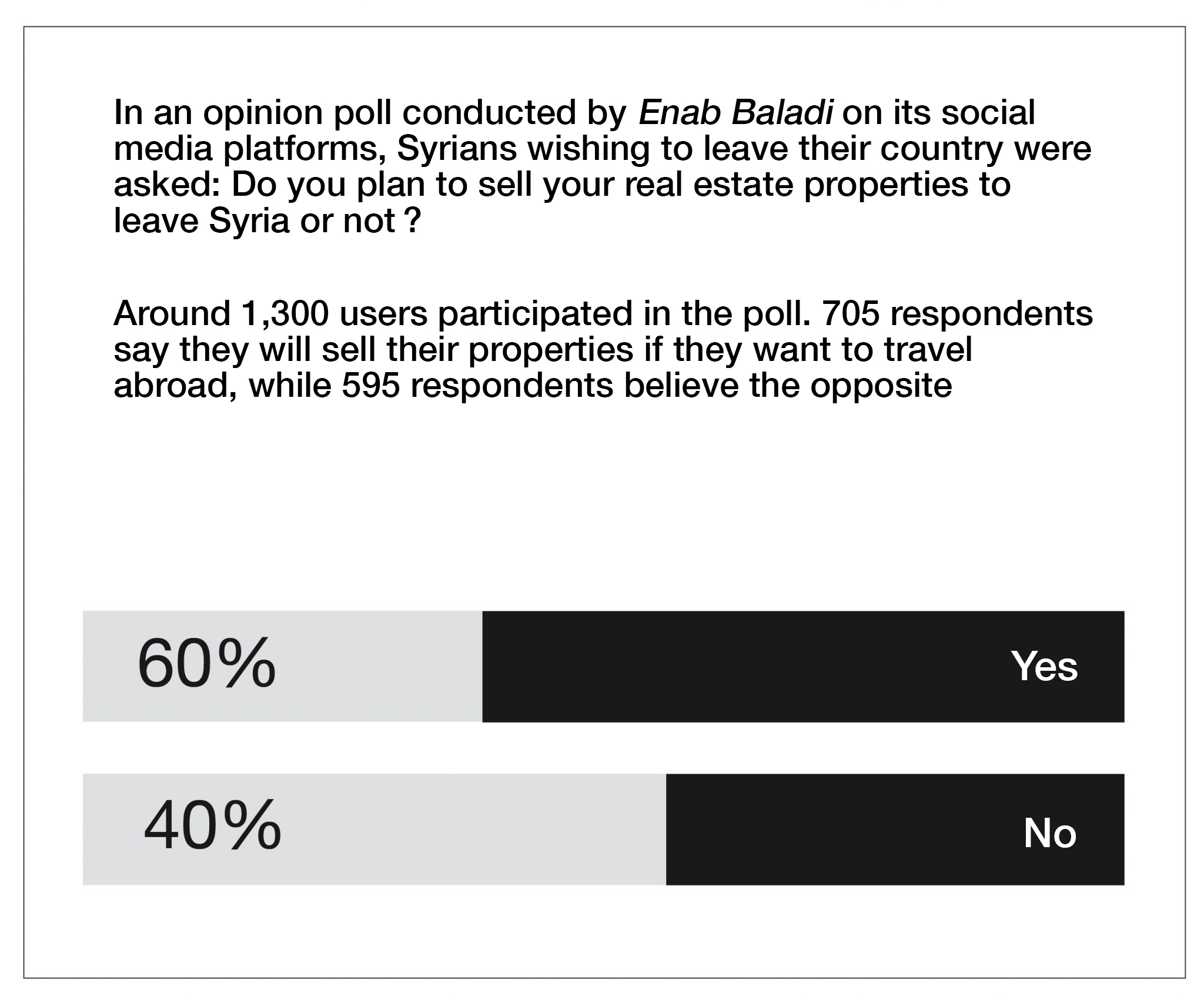


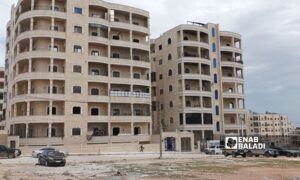


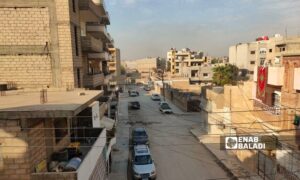
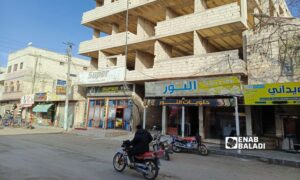
 More HLP
More HLP